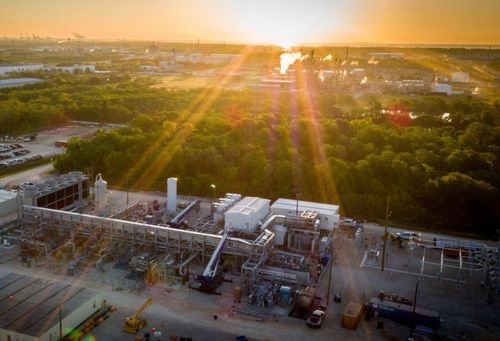Norwegian electrolyzer manufacturer Nel is seeking to capitalize on the scaling up of hydrogen projects by expanding its manufacturing presence in the United States.
The company has narrowed its search to three sites that could support a 2 GW manufacturing plant producing both PEM and alkaline electrolyzers.
Nel executives also said they would spend $25m to expand PEM electrolyzer production capacity at its Wallingford, Connecticut plant to 500 MW, from 50 MW currently. The company has received a $5.6m grant from the US Department of Defense for advanced PEM electrolyzer development. The Connecticut facility is estimated to be at full capacity by 2025.

“Due to the [Inflation Reduction Act] and the political developments in the US, we expect a lot of demand to come from the US,” CEO Hakon Volldal said on the company’s 4Q earnings call today.
Of the three remaining potential site options in the US, Nel is evaluating parameters such as labor costs, support packages, and construction costs. “It’s a tight race,” Volldal said, adding that he expects a final decision in the first half of this year.
Market share
Nel is aiming for 20% – 30% market share (excluding China) in electrolyzers as the hydrogen market scales up, Volldal said, with the company targeting North America and Europe as well as other large export hubs.
“The electrolyzer industry is going from small to large scale – that’s a fact,” Volldal said. “The jury is not out anymore – this is happening.”
Volldal added that Nel would rapidly scale production capacity in line with market demand. “We will be ahead of the market, but we won’t build dozens of factories that are empty – we want to phase in capacity in a smart way.”
Nel has established an order backlog of $251m and is growing revenues, but the company recorded negative EBITDA of $20.9m in 4Q22.
In 4Q, Nel received orders from Woodside Energy for a project in Oklahoma in addition to a purchase order from Statkraft.
PEM vs alkaline
Volldal believes Nel has the cheapest atmospheric alkaline electrolyzer in the market. The company is also developing a pressurized alkaline system.
He acknowledges that Nel’s PEM electrolyzer is not the cheapest, which led the company to strike a deal with General Motors to accelerate industrialization of Nel’s PEM platform.
“The reason we are investing in multiple technologies is because the jury is still out,” Volldal said, noting that PEM electrolyzers are currently the least efficient when it comes to electricity use. But with newer membrane technologies, “it might become fantastic,” he added.
“You still have reason to believe that atmospheric alkaline can become cheaper and more efficient. There’s a lot happening in pressurized alkaline. So we have to acknowledge that we don’t know yet, and that’s why we at Nel invest in multiple R&D platforms” until there’s a clear technology leader, he said.






